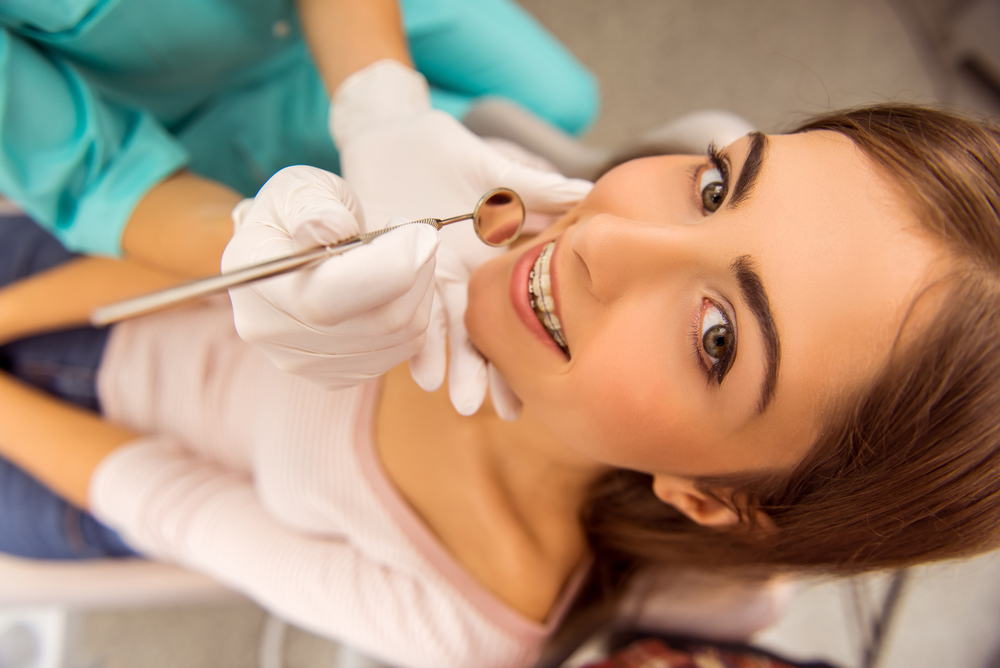
Your teeth are the hardest substance in the body – even harder than your bones! However, strong doesn’t mean indestructible teeth are susceptible to decay, chips, and cracks, especially while going through orthodontic treatment. Dental fillings are the most efficient and cost-effective method for repairing a damaged tooth, and with proper care, tooth restorations can last for years.
If you manage to chip, crack, or break a tooth while wearing braces, the good news is, the tooth can still be easily repaired. If this happens to you or your child, knowing what to do at that moment will help alleviate some stress and give you the confidence in knowing you’re properly handling the situation is vital.
What Constitutes as a Dental Emergency?
Injuries to the mouth can be detrimental to your smile. Not only can a damaged tooth alter how your grin looks, but trauma to the mouth can also cause damage to the teeth and gums. Dental emergencies include toothaches, severely chipped teeth, broken fillings, broken crowns, or a knocked-out tooth. A cracked chipped, or knocked-out tooth can result in dental infections or complete tooth loss if left untreated.
Dental Emergencies With Braces
When it comes to braces, dental emergencies also include broken brackets or wires, wires that are poking out, and loose or missing elastic ties. If a dental emergency happens with braces, it can severely cut up a patient’s gum tissue. This is why mouthguards are so important in sports if a patient has traditional metal braces. Keep your athlete’s mouth protected by having them wear a mouthguard while playing sports.
What to Do Before Your Dentist Can See You
Most dentists try to see patients in emergencies as soon as possible, but timing isn’t always on our side with dental emergencies. Perhaps you’re on a family vacation away from home, or it’s late on a Saturday night, and you haven’t been able to reach anyone in the dental office yet.
Before the dentist can see you, here’s what we recommend you do in the meantime:
Clove Oil
Applying a small amount of clove oil to the sensitive area with a cotton swab will give you immediate pain relief. You can find clove oil in drugstores or the spice aisles of many supermarkets or grocery stores.
Dental Cement
You can put dental cement directly on the tooth surface to help protect and seal the area until you’re able to see your dentist. This can also help relieve the pain and sensitivity you may be experiencing from having the tooth exposed.
Avoiding Dental Emergencies During Orthodontic Treatment
Nobody wants to experience a dental emergency, especially while wearing braces, because brackets and wires can make dental emergencies that much worse. You can avoid a dental emergency with braces altogether by keeping your teeth protected. Wear a mouthguard while playing sports, even during practices. Additionally, keeping an emergency kit filled with wax will help cover any poking wires or brackets and keep your mouth tissue protected. If your child does experience tooth trauma, have them seen by a dentist right away to ensure there is no permanent damage to the affected tooth or teeth.
Protecting Tooth Restoration Work
Regular dental care is always recommended for many reasons. One of them is so your dentist can detect potential problems and monitor things like fillings before they become loose and fall out. Your dentist can also identify potential issues before they become a more significant issue, so it’s imperative to be seen for cleanings and exams every six months.
Left untreated, a damaged tooth could lead to a root canal and possible loss of the tooth, so be sure to address dental issues as soon as they happen. If you ever find yourself in a dental emergency in the Hinsdale area, contact Thomas Orthodontics so we can aid in evaluating the damage and help keep your orthodontic treatment plan on track.





